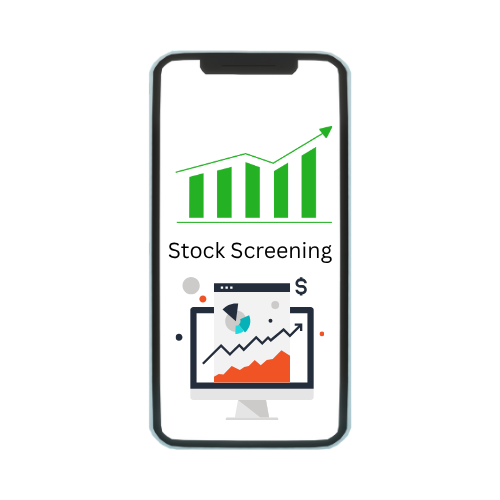Introduction
- Over the counter derivative are traded between two parties without going through an exchange or any other intermediaries. It refers to stocks that trade via dealer network and not any centralized exchange. These are known as unlisted stocks where the trading is carried out through by broker-dealers.
What are the over the counter derivative
- Derivative Contract are signed directly between the parties without the involvement of any stock market platforms or other middlemen. Stocks that trade through a different dealer are known as Over the counter derivative. These are known as unlisted stocks where brokers and dealers trade securities over the counter. OTC provides higher flexibility because the terms and conditions are open for negotiation and customization.
Definition
An Over the Counter Derivative is a financial contract that is arranged between two counterparties but with minimal intermediation or Regulation.
How Do OTC Derivatives Work?
- Over the Counter Derivatives are private financial agreement. It is negotiated between counterparties without going through an exchange or other type of formal intermediaries. Listed contracts are more structured and standardized contracts that trade on stock exchanges subject to more regulations.
- Therefore over the counter derivatives could be negotiated and customized to suit the exact risk and return needed by each party. Although this type of derivative offers flexibility it does possess credit risk. This type of derivative offers flexibility but because there is no clearing agency, it also carries credit risk.
What are Derivatives and Derivatives Trading?
- Derivatives are the instruments which include security derived from debt instrument share, loan , risk instrument or contract for differences of any other form of security and a contract that derives its value from the price/index of prices of underlying securities. Derivative is contract that derives it value from the underlying asset.
- Derivative Trading involves both buying and selling of these financial contracts in the market. With derivatives the trader can make profit by predicting the future price movement of the underlying asset. Derivative Trading in the share market is better than buying the underlying asset.
Types of OTC Derivatives Market
1. Inter-dealer Markets
- An Inter-dealer market is a trading market that is accessible only by banks and financial institutions. It is an Over the Counter Derivative Market that is not restricted to a physical location. It is a global market comprised of a network of dealers in which the representatives of banks and financial institutions execute trades. Currency transactions in the inter dealer market can be either speculative or customer driven.
- The dealers send quotes to the broker who, in effect, broadcasts the information by telephone. Brokers often provide trading platforms such as dark pools to give their clients the ability to instantaneously post quotes to every other dealer in the broker’s network. The bulletin boards show bid, ask, and, sometimes, execution prices.
- The broker screens are normally not available to end-customers, who are rarely aware of changes in prices and the bid-ask spread in the interdealer market. Dealers can sometimes trade through the screen or over the electronic system. Some interdealer trading platforms allow automated algorithmic trading like that of the electronic exchanges. Otherwise the screens are merely informative, and the dealer must trade through the broker or call other dealers directly to execute a trade.
2. Customer Market:
- In this type, over the counter trading is conducted between a dealer and the customer. In the customer market, bilateral trading occurs between dealers and their customers, such as individuals or hedge funds. Dealers often initiate contact with their customers through high-volume electronic messages called “dealer-runs” that list securities and derivatives and the prices at which they are willing to buy or sell them. The customers and dealers agree on the pricing for purchasing and selling derivatives. These prices are provided by dealers to customers.
Differences between Exchange Traded Derivatives and OTC derivatives.
| Exchange Traded Derivatives | Over the Counter Derivatives |
Nature of Transaction | The stock exchange facilitates bilateral trading by acting as an intermediary | This is a private transaction between two or more parties |
Price Transparency | There is Price Transparency | There is no Price Transparency |
Margin in Trade | Margin is set according to the stock exchange rules | The collateral is negotiated between the parties that can be any amount or asset |
Market Participants | Retail and institutional investors market makers and authorized participants | Typically financial institutions hedge funds and large investors |
Trading Hours | Limited to Specific exchange hours | Continuous 24/7 |
Liquidity | Generally higher due to the large number of market participants | Depends on the size and frequency of the trades between the parties |
Regulation | Regulated by government agencies such as SEC or CFTC | Minimal as there is no central authority to oversee the market |
Costs | Lower due to presence of price competition and the ability to take advantage of volume discounts. | Typically higher due to the absence of price competition |
Execution Speed | Can be slower due to the need for price matching and the potential for network delays. | Fast as transactions can be completed directly between the parties |
Types of OTC Derivatives
1. Interest Rate Derivatives
Interest Rate Derivative is a financial derivative which derives its value from one or more interest rates, the price of interest rate instruments, or interest rate indexes. Swaps are the most common OTC Derivative that derives its value from the interest rates
2. Commodity Derivatives
A derivative contract, which has a commodity as its underlying asset is known as commodity derivative contract. The commodities traded under this derivative contract are agricultural as well as non-agricultural commodities
3. Equity Derivatives
These derivatives derive their value from the underlying equity securities. The most popular OTC Equity derivative is OTC options.
4. Currency Derivatives
Currency derivatives are futures and options contract that require trading a specific quantity of a particular currency pair at a future date. Currency derivative trading is comparable to stock and futures options trading. Here the underlying resources are currency pairings like USD/INR or EUR/INR.
5. Credit Derivatives
Without any underlying asset exchange, one party transfers the credit risk to another. OTC trading in credit derivatives includes Credit Default Swap as well as Credit Linked Notes
Advantages of OTC Derivatives
- It allows small companies to engage in trade without listed on stock exchange.
- Since the OTC derivatives are agreed upon privately. It allows the parties to have a much more flexible and customized contract
- It can be used for hedging, transferring trading risks, and as leverage for business operations.
- OTC contracts are beneficial in hedging against credit risk
- For unlisted companies, it works as a mechanism to trade with lower cost and lesser regulations.
Disadvantages of OTC Derivatives
- OTC contracts are inherently speculative, thus having the possibility of creating market integrity issues.
- Any OTC Contracts runs the associated risk of credit or default as there is no central mechanism to clear and settle the transactions
- OTC derivatives markets embody risks to financial market stability
- There are no regulations to cover these contracts.
- The integrity and stability of the market, as well as the protection of the interest of all markets players collectively, are not guaranteed by any explicit rules or systems.
- Counterparty risk management is decentralized and carried out by separate institutions.
Risks Hedged Using OTC Derivatives
Hedging is the process that helps reduce the financial asset risk. To hedge is to take an opposite position in a security or investment to balance out an existing trade’s price risk. Investors can protect themselves against unfavorable price changes in practically any investment, including stocks, bonds, interest rates , currencies, commodities, and so on.
1. Currency Risk: Using derivatives a trader can hedge or protect against currency rate fluctuations. Companies with a higher number of foreign currency transactions benefit from OTC derivatives. The way they ensure that the fluctuations do not increase their obligations or decrease their income.
2. Interest Rate Risk : An interest rate swap protects a trader from rising or falling interest rates in the market.
3. Commodity Risk : Similar to currency risk, traders face the risk of fluctuations in prices of commodities such as gold, oil, agricultural produce and so on. By entering into a commodity derivative, the trader deals to buy or sell the commodity at a specific price. Hence the risk or fall beyond or below the agreed price does not impact the trader.
Conclusion
Over the Counter is trading securities via a broker dealer network as opposed on a centralized exchange. Through dealer networks, over-the-counter derivatives trading is carried out. These derivatives are frequently referred to as unlisted stocks. OTC derivatives trades are carried out by the broker/dealer network through direct negotiations in which the terms are agreed upon by both parties. Over-the-counter derivatives may be modified to precisely meet each participant’s risk and return criteria. Because there is no clearing corporation, this type of derivative offers freedom but also poses a credit risk.
Frequently Asked Questions (FAQs): -
Both OTC derivatives and exchange-traded futures are financial instruments used for risk management and speculation. They derive their value from an underlying asset and involve contracts between two parties. However, OTC derivatives are traded directly between counterparties, while exchange-traded futures are traded on organized exchanges.
No, futures contracts are not considered OTC derivatives. Unlike OTC derivatives, futures contracts are traded on organized exchanges, with standardized terms and clearing mechanisms. OTC derivatives, on the other hand, are traded directly between counterparties, allowing for greater customization and flexibility.
Mark-to-market margins are typically not applicable to OTC options. OTC options are customized contracts traded directly between counterparties, and the margin requirements may vary based on the agreement between the parties. However, exchange-traded options may have mark-to-market margin requirements set by the exchange.
OTC derivatives can be risky, primarily due to counterparty risk and the complexity of these instruments. Counterparty risk arises from the potential default or financial instability of the parties involved in the contract. Additionally, the complexity of OTC derivatives requires a deep understanding of the underlying assets and market dynamics. Proper risk management and due diligence are essential when dealing with OTC derivatives.




